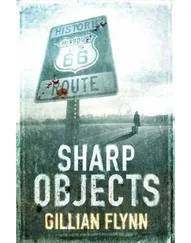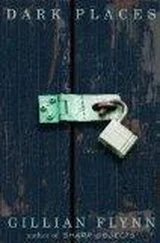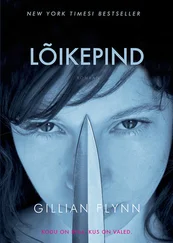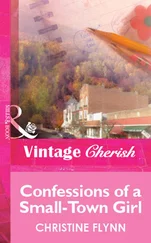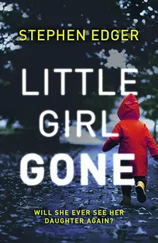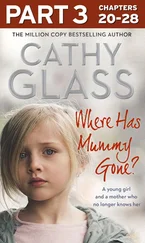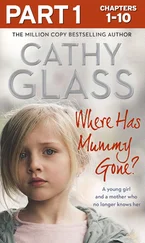My neighborhood doesn’t even have a name, it’s so forgotten. It’s called Over There That Way. A weird, subprime area, full of dead ends and dog crap. The other bungalows are packed with old people who’ve lived in them since they were built. The old people sit, gray and pudding-like, behind screen windows, peering out at all hours. Sometimes they walk to their cars on careful elderly tiptoes that make me feel guilty, like I should go help. But they wouldn’t like that. They are not friendly old people—they are tight-lipped, pissed-off old people who do not appreciate me being their neighbor, this new person. The whole area hums with their disapproval. So there’s the noise of their disdain and there’s the skinny red dog two doors down who barks all day and howls all night, the constant background noise you don’t realize is driving you crazy until it stops, just a few blessed moments, and then starts up again. The neighborhood’s only cheerful sound I usually sleep through: the morning coos of toddlers. A troop of them, round-faced and multilayered, walk to some daycare hidden even farther in the rat’s nest of streets behind me, each clutching a section of a long piece of rope trailed by a grown-up. They march, penguin-style, past my house every morning, but I have not once seen them return. For all I know, they troddle around the entire world and return in time to pass my window again in the morning. Whatever the story, I am attached to them. There are three girls and a boy, all with a fondness for bright red jackets—and when I don’t see them, when I oversleep, I actually feel blue. Bluer. That’d be the word my mom would use, not something as dramatic as depressed . I’ve had the blues for twenty-four years.
I PUT ONa skirt and blouse for the meeting, feeling dwarfy, my grown-up, big-girl clothes never quite fitting. I’m barely five foot—four foot, ten inches in truth, but I round up. Sue me. I’m thirty-one, but people tend to talk to me in singsong, like they want to give me fingerpaints.
I headed down my weedy front slope, the neighbor’s red dog launching into its busybody barking. On the pavement near my car are the smashed skeletons of two baby birds, their flattened beaks and wings making them look reptilian. They’ve been there for a year. I can’t resist looking at them each time I get in my car. We need a good flood, wash them away.
Two elderly women were talking on the front steps of a house across the street, and I could feel them refusing to see me. I don’t know anyone’s name. If one of those women died, I couldn’t even say, “Poor old Mrs. Zalinsky died.” I’d have to say, “That mean old bitch across the street bit it.”
Feeling like a child ghost, I climbed into my anonymous midsized car, which seems to be made mostly of plastic. I keep waiting for someone from the dealership to show up and tell me the obvious: “It’s a joke. You can’t actually drive this. We were kidding.” I trance-drove my toy car ten minutes downtown to meet Jim Jeffreys, rolling into the steakhouse parking lot twenty minutes late, knowing he’d smile all kindly and say nothing about my tardiness.
I was supposed to call him from my cell phone when I arrived so he could trot out and escort me in. The restaurant—a great, old-school KC steakhouse—is surrounded by hollowed-out buildings that concern him, as if a troop of rapists was permanently crouched in their empty husks awaiting my arrival. Jim Jeffreys is not going to be The Guy Who Let Something Bad Happen to Libby Day. Nothing bad can happen to BRAVE BABY DAY, LITTLE GIRL LOST, the pathetic, red-headed seven-year-old with big blue eyes, the only one who survived the PRAIRIE MASSACRE, the KANSAS CRAZE-KILLINGS, the FARMHOUSE SATAN SACRIFICE. My mom, two older sisters, all butchered by Ben. The only one left, I’d fingered him as the murderer. I was the cutie-pie who brought my Devil-worshiping brother to justice. I was big news. The Enquirer put my tearful photo on the front page with the headline ANGEL FACE.
I peered into the rearview mirror and could see my baby face even now. My freckles were faded, and my teeth straightened, but my nose was still pug and my eyes kitten-round. I dyed my hair now, a white-blonde, but the red roots had grown in. It looked like my scalp was bleeding, especially in the late-day sunlight. It looked gory. I lit a cigarette. I’d go for months without smoking, and then remember: I need a cigarette. I’m like that, nothing sticks.
“Let’s go, Baby Day,” I said aloud. It’s what I call myself when I’m feeling hateful.
I got out of the car and smoked my way toward the restaurant, holding the cigarette in my right hand so I didn’t have to look at the left hand, the mangled one. It was almost evening: Migrant clouds floated in packs across the sky like buffalo, and the sun was just low enough to spray everything pink. Toward the river, between the looping highway ramps, obsolete grain elevators sat vacant, dusk-black and pointless.
I walked across the parking lot all by myself, atop a constellation of crushed glass. I was not attacked. It was, after all, just past 5 p.m. Jim Jeffreys was an early-bird eater, proud of it.
He was sitting at the bar when I walked in, sipping a pop, and the first thing he did, as I knew he would, was grab his cell phone from his jacket pocket and stare at it as if it had betrayed him.
“Did you call?” he frowned.
“No, I forgot,” I lied.
He smiled then. “Well, anyway. Anyway, I’m glad you’re here, sweetheart. Ready to talk turkey?”
He slapped two bucks on the bartop, and maneuvered us over to a red leather booth sprouting yellow stuffing from its cracks. The broken slits scraped the backs of my legs as I slid in. A whoof of cigarette stink burped out of the cushions.
Jim Jeffreys never drank liquor in front of me, and never asked me if I wanted a drink, but when the waiter came I ordered a glass of red wine and watched him try not to look surprised, or disappointed, or anything but Jim Jeffreys–like. What kind of red? the waiter asked, and I had no idea, really—I never could remember the names of reds or whites, or which part of the name you were supposed to say out loud, so I just said, House . He ordered a steak, I ordered a double-stuffed baked potato, and then the waiter left and Jim Jeffreys let out a long dentist-y sigh and said, “Well, Libby, we are entering a very new and different stage here together.”
“So how much is left?” I asked, thinking saytenthousandsayten thousand .
“Do you read those reports I send you?”
“I sometimes do,” I lied again. I liked getting mail but not reading it; the reports were probably in a pile somewhere in my house.
“Have you listened to my messages?”
“I think your cell phone is messed up. It cuts out a lot.” I’d listened just long enough to know I was in trouble. I usually tuned out after Jim Jeffreys’ first sentence, which always began: Your friend Jim Jeffreys here, Libby …
Jim Jeffreys steepled his fingers and stuck his bottom lip out. “There is 982 dollars and 12 cents left in the fund. As I’ve mentioned before, had you been able to replenish it with any kind of regular work, we’d have been able to keep it afloat, but …” he tossed out his hands and grimaced, “things didn’t work out that way.”
“What about the book, didn’t the book …?”
“I’m sorry, Libby, the book did not. I tell you this every year. It’s not your fault, but the book … no. Nothing.”
Years ago, to exploit my twenty-fifth birthday, a publisher of self-help books asked me to write about how I’d conquered the “ghosts of my past.” I had in no way conquered much of anything, but I agreed to the book anyway, talking over the phone with a woman in New Jersey who did the actual writing. The book came out at Christmas time, 2002, with a cover photo of me sporting an unfortunate shag haircut. It was called, Brand New Day! Don’t Just Survive Childhood Trauma—Surpass It! and it included a few childhood snapshots of me and my dead family, packed between two hundred pages of gloppy, positive-thinking porridge. I was paid $8,000, and a smattering of survivors’ groups invited me to speak. I flew to Toledo for a meeting of men who’d been orphaned young; to Tulsa for a special gathering of teenagers whose moms had been killed by their dads. I signed my book for mouth-breathing kids who asked me jarring questions, like did my mom cook pies. I signed the book for gray, needful old men peering at me from behind bifocals, their breath blasting burnt coffee and stomach acid. “Start a New Day!” I’d write or “A New Day Awaits!” How lucky to have a pun for a last name. The people who came to meet me always looked exhausted and desperate, standing uncertainly near me in loose packs. The groups were always small. Once I realized I wasn’t getting paid for any of this, I refused to go anywhere. The book had already bombed anyway.
Читать дальше

